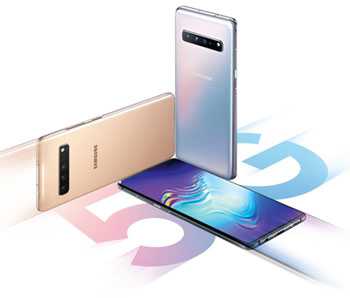Samsung Chief Tries to Market 5G Mobile Devices in Japan
20 May, 2019

Samsung chief Lee Jae-yong launched a marketing blitz to gain a foothold in Japan's 5G mobile communication market.
Japan hopes to launch full-fledged 5G services when it hosts the Summer Olympics next year, but there is as yet dearth of 5G handsets available there. It also hit a hurdle importing 5G infrastructure due to the U.S. government's crackdown on Chinese tech giant Huawei. Samsung is the only other company in the world that has both communication equipment and 5G-ready phones to sell.
Lee arrived in Japan last Wednesday and met with top management at Japan's two largest telecoms, NTT DoCoMo and KDDI, to discuss 5G business plans. Samsung said the meeting "will serve as a chance to boost the market share of Samsung's communication equipment and smartphones."
Japan has been virtually impervious to Samsung products so far. Even though it remains the world's No. 1 smartphone maker, Samsung ranks a poor sixth in Japan with a market share of just 2.9 percent.
Apple rules there with a 57.4 percent market share, followed by Sharp (8.1 percent), Sony (6.2 percent) and Kyocera (five percent), which have no great presence elsewhere.
Samsung even omits its own logo on phones it sells in Japan, which bear only the Galaxy brand name. It pulled out its home appliances business altogether in 2007 when its market share shrank to a paltry 0.1 percent.
But 5G market could finally turn the situation around. Apple has yet to decide on when it will release a 5G handset, and there are no Japanese manufacturers to roll one out so far. Only Sony has announced plans to launch one.
Japan's four major telecoms that were allotted 5G bandwidths in April told their government that they do not intend to use Huawei equipment because they do not want to fall foul of the U.S. government, which suspects Huawei equipment of coming with built-in spy tech because it is part-controlled by the Chinese government.
This is where Samsung sees its chance, and it already signed a deal to jointly work on 5G technology with NEC last year. It is also an official sponsor of the Tokyo Olympics. During his trip, Lee visited a Galaxy smartphone showroom in the Harajuku neighborhood of Tokyo.
Lee is focusing on 5G technologies, artificial intelligence, system semiconductors and automotive electronics now that growth in the smartphone market is stalling. He also visited Canada and Europe in March and April to tout Samsung's global AI businesses there.
Samsung has set up AI research centers in the U.S., the U.K., Canada and Russia. The company also plans to invest W133 trillion into system semiconductors over the next 12 years, aiming to become the world's No. 1 by 2030.
